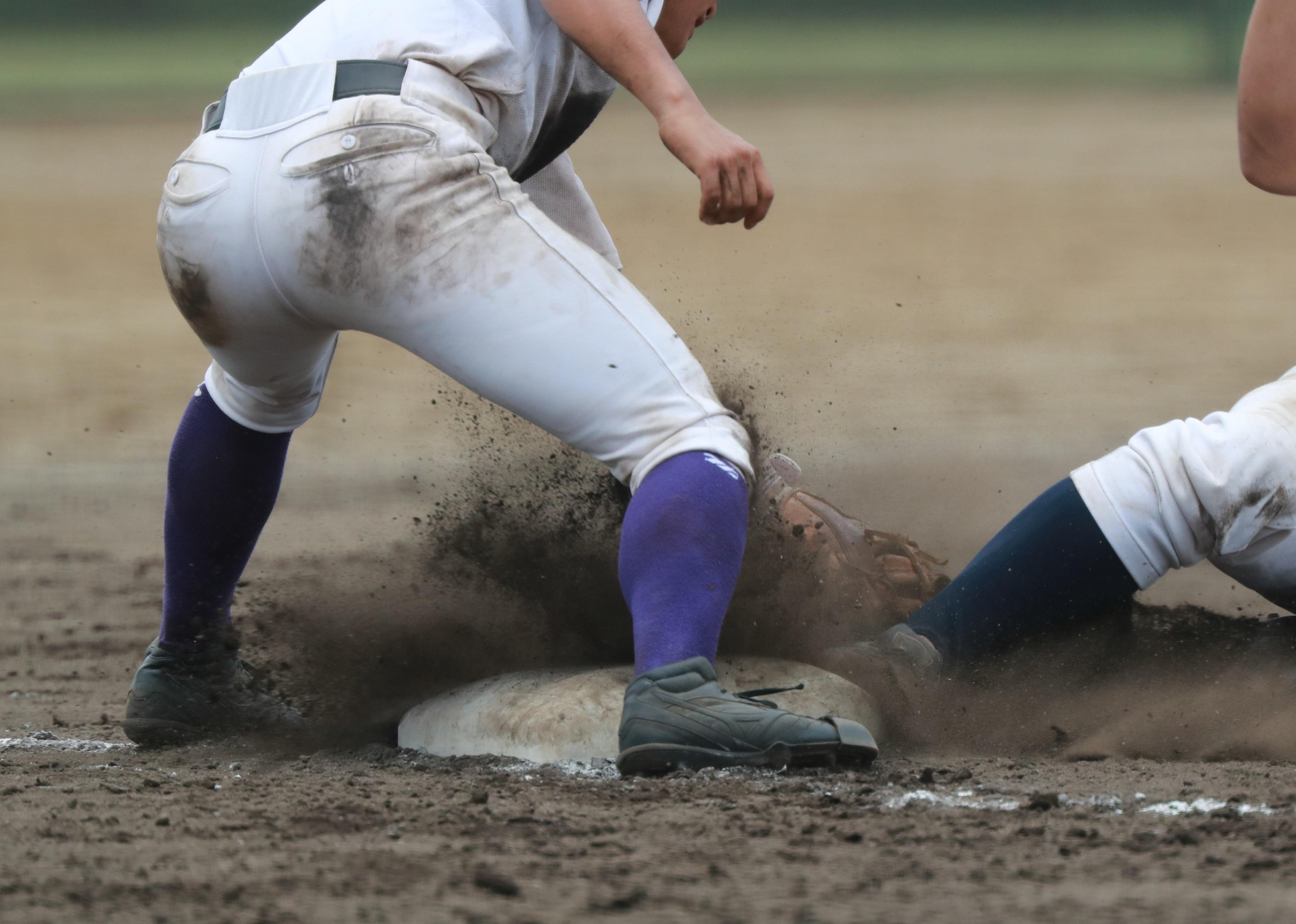
Fastest runners for the Texas Rangers
Imagine being a catcher watching as Ty Cobb came running toward home plate at full speed, fearless of barrelling into you in order to score a run. Or being a pitcher eyeing Ricky Henderson on first, anxious not to give him his 1,400th stolen base. These guys were fast—no doubt about it—but just how fast they were, we can't really say.
Technology has come a long way since those players' time on the field. During the 2017 season, Major League Baseball introduced Sprint Speed, which "is a Statcast metric that aims to more precisely quantify speed by measuring how many feet per second a player runs in his fastest one-second window." The metric currently includes "qualified runs" from two different categories: runs of two bases or more on hits that aren't home runs, and home-to-first runs on "topped" or "weakly hit" balls. The best of these runs are averaged, and any run of at least 30 ft/sec is known as a Bolt.
Why is this metric useful? According to MLB, "approximately seven full-effort strides can be captured over the course of a one-second window, so Sprint Speed rewards those who can sustain their speed over a longer period of time." On a more strategic level, teams can now examine those stats to determine how to best defend against a hitter or base runner who has a tendency to bolt. (Or on the flipside, how to play against a slow runner.)
The stat has proven to be a useful one, as the total number of stolen bases has been on the decline since Sprint Speed was introduced. In 2012, 3,230 bases were stolen between the American and National Leagues, and that was the last time the number broke 3,000. In 2021, that number decreased to 2,209.
Stacker compiled a list of the runners for the Texas Rangers whose measured sprint speeds were the highest, using data from MLB's Statcast tracking system. Players are ranked by the highest average sprint speed through the end of May 2022 with ties broken using the average time from home to first.
#10. C Mitch Garver - 26.2 feet/second
- #296 in average sprint speed among MLB baserunners this year
- Competitive runs recorded: 31
- Average time from home to first (in seconds): 4.73
#9. 1B Nathaniel Lowe - 26.3 feet/second
- #285 in average sprint speed among MLB baserunners this year
- Competitive runs recorded: 65
- Average time from home to first (in seconds): 4.46
#8. C Sam Huff - 26.9 feet/second
- #233 in average sprint speed among MLB baserunners this year
- Competitive runs recorded: 14
- Average time from home to first (in seconds): not available
#7. LF Brad Miller - 27.3 feet/second
- #193 in average sprint speed among MLB baserunners this year
- Competitive runs recorded: 37
- Average time from home to first (in seconds): 4.42
#6. 3B Andy Ibáñez - 27.4 feet/second
- #180 in average sprint speed among MLB baserunners this year
- Competitive runs recorded: 43
- Average time from home to first (in seconds): 4.42
#5. 3B Charlie Culberson - 27.6 feet/second
- #163 in average sprint speed among MLB baserunners this year
- Competitive runs recorded: 23
- Average time from home to first (in seconds): 4.34
#4. CF Adolis García - 28.3 feet/second
- #77 in average sprint speed among MLB baserunners this year
- Competitive runs recorded: 57
- Average time from home to first (in seconds): 4.34
#3. LF Nick Solak - 28.5 feet/second
- #63 in average sprint speed among MLB baserunners this year
- Competitive runs recorded: 30
- Average time from home to first (in seconds): 4.4
#2. 2B Marcus Semien - 28.6 feet/second
- #54 in average sprint speed among MLB baserunners this year
- Competitive runs recorded: 75
- Average time from home to first (in seconds): 4.41
#1. LF Eli White - 30 feet/second
- #5 in average sprint speed among MLB baserunners this year
- Competitive runs recorded: 22
- Average time from home to first (in seconds): not available



